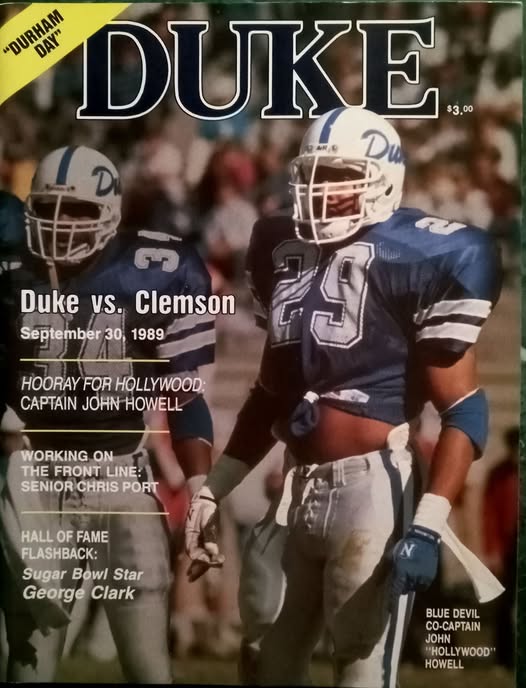Since his arrival in Durham, Coach Diaz has consistently emphasized the importance of mental health for both his players and coaching staff. More than just a strategy for on-field success, this focus represents a deep commitment to the well-being of those under his leadership. As the sports world increasingly acknowledges the mental challenges that come with high-level competition, Diaz has been at the forefront, ensuring that his team’s mental fitness receives the same attention as their physical training.
A New Era of Coaching
Traditionally, athletics has placed an overwhelming focus on physical endurance, strength, and strategy, often neglecting the psychological toll that competitive sports can take on players. However, Diaz has ushered in a new era—one where mental health is as vital to success as weightlifting or conditioning drills. Since relocating to Durham, he has integrated a comprehensive mental wellness program into his coaching philosophy, reshaping how his staff and players approach the pressures of collegiate sports.
Diaz has emphasized that a healthy mind leads to a better athlete. Stress, anxiety, and burnout can deteriorate even the most talented player’s performance. Recognizing this, he has taken proactive measures to ensure that his team receives the support they need. Whether through regular mental health check-ins, team discussions about emotional well-being, or access to professional psychological resources, Diaz’s leadership has created an environment where mental health is prioritized, not stigmatized.
Implementing a Culture of Openness
One of the most remarkable changes under Diaz’s tenure has been the establishment of an open dialogue around mental health. In the past, players may have felt hesitant to discuss struggles with stress or performance anxiety for fear of being perceived as weak. Diaz has actively worked to dismantle this stigma by fostering an atmosphere where honesty about mental well-being is encouraged.
Through team meetings, one-on-one conversations, and leadership workshops, players have been given the tools to speak openly about their emotional challenges. His coaching staff, too, has benefited from this shift, as they are encouraged to prioritize their mental health while modeling a healthy work-life balance for the team. By normalizing these discussions, Diaz has reinforced the idea that strength is not just about physical toughness but also about resilience and self-awareness.
Resources for Mental Wellness
To back his philosophy with action, Diaz has implemented several programs and resources aimed at mental wellness. Some key initiatives include:
- Licensed Sports Psychologists: Diaz has ensured that his players have access to sports psychologists who specialize in managing the unique pressures of high-level athletics. These professionals assist in developing coping strategies, handling performance anxiety, and maintaining focus during high-stakes moments.
- Mindfulness and Meditation Practices: Guided mindfulness exercises and meditation sessions have become a regular part of the team’s routine. Studies show that these techniques enhance concentration, reduce stress, and improve overall emotional regulation.
- Time Management and Work-Life Balance Training: To help players manage the demanding schedule of academics and athletics, workshops on time management and stress reduction techniques have been introduced.
- Confidential Support Networks: Confidential counseling services provide a safe space for players and staff to seek help when facing personal struggles.
By incorporating these programs into the team’s daily routine, Diaz ensures that mental wellness is not an afterthought but a key component of the team’s overall development.
The Impact on Player Performance and Team Cohesion
The benefits of this mental health emphasis have been evident both on and off the field. Players report feeling more supported, motivated, and engaged in their training. Improved mental health correlates directly with better performance—athletes who feel balanced and secure are more focused, resilient, and capable of handling pressure situations effectively.
Additionally, the team has become more cohesive under Diaz’s leadership. With open lines of communication and shared experiences in mental wellness programs, players have developed stronger bonds and a greater sense of trust. This unity translates to better teamwork and stronger performances in high-pressure situations.
The Broader Impact Beyond the Team
Diaz’s commitment to mental health extends beyond just his immediate team. By publicly advocating for mental wellness in sports, he is setting an example for other programs and coaching staff across collegiate athletics. His emphasis on mental health is part of a broader movement toward a more holistic approach to athlete development—one that considers the emotional and psychological aspects as much as the physical.
Colleges and universities nationwide are beginning to take note, incorporating similar strategies into their athletic departments. Diaz has become a thought leader in this space, proving that prioritizing mental health does not mean sacrificing competitiveness; rather, it enhances long-term success and sustainability in athletics.
A Lasting Legacy
As Diaz continues to build his program in Durham, his legacy is already taking shape. His philosophy is changing the way athletes and coaches alike perceive mental health, encouraging a shift from outdated notions of toughness to a more comprehensive understanding of strength. His approach proves that taking care of players’ minds is just as important as refining their skills.
By placing mental health at the forefront, Diaz has established a culture where athletes thrive—not just as competitors, but as well-rounded individuals. His commitment to fostering resilience, emotional intelligence, and overall well-being ensures that his impact will be felt for years to come, not only in Durham but across the world of collegiate athletics.



